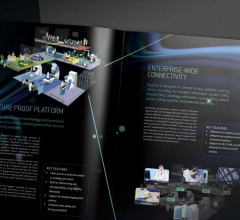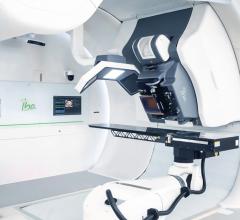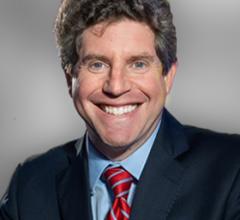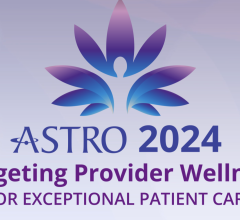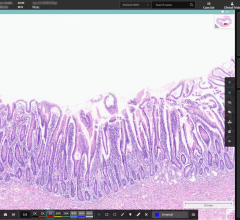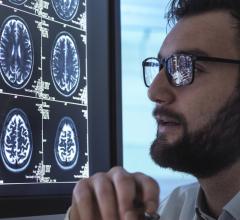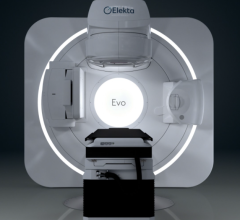
Getty Images
February 14, 2022 — Cancer patients undergoing active treatment were more likely to believe misinformation related to COVID-19 than those without a history of cancer, according to a new study led by researchers at Virginia Commonwealth University.
“These findings help us better understand the threat of COVID-19 misinformation in an already vulnerable population,” said lead author Jeanine Guidry, Ph.D., an assistant professor at the Richard T. Robertson School of Media and Culture in the College of Humanities and Sciences, director of the Media+Health Lab at VCU and a member of the Cancer Prevention and Control research program at VCU Massey Cancer Center. “Understanding who is more likely to believe certain types of misinformation brings us closer to understanding why this is the case, which in turn may help us address this concerning issue.”
The study, “Endorsement of COVID-19 Related Misinformation Among Cancer Survivors,” was published in the journal Patient Education and Counseling.
Guidry and colleagues conducted a survey of 897 adults, with roughly one-third undergoing treatment for cancer, one-third cancer survivors not currently in treatment, and one-third respondents with no cancer history. They found that cancer patients currently undergoing treatment were more likely to believe false information about COVID-19 than the other two groups. Least likely to endorse COVID-19 misinformation were cancer survivors no longer in treatment.
“These results highlight that, compared to healthy adults without cancer, cancer survivors currently undergoing treatment may be more vulnerable to COVID-19-related misinformation, while those no longer in treatment are less vulnerable,” the researchers wrote.
Why are cancer patients more likely to endorse COVID-19 misinformation? The reasons are not entirely clear, the researchers say.
“It may be that survivors currently undergoing treatment have heightened anxiety about how the current pandemic will impact their course of survival, leading them to seek out more information on the internet or via social media where they are more exposed to misinformation,” they wrote. “Increased information seeking may impact cancer patients’ information-processing abilities, making them more likely to use heuristics or cues, rather than more critical, central processing routes of assessing information credibility.”
The study also found that cancer survivors who are no longer in treatment may have more experience evaluating the veracity of information they read online.
“Our cancer survivors, they’ve gone through this journey and come out the other end, knowing you can’t believe everything you read on the internet – they know you have to talk to your doctor and other people who are knowledgeable about these issues,” said study senior author Bernard Fuemmeler, Ph.D., associate director for population science and Gordon D. Ginder, M.D., Chair in Cancer Research at VCU Massey Cancer Center as well as professor of health behavior and policy at the VCU School of Medicine.
The results build on a previous study by the researchers that found that parents of children with cancer were more likely to believe misinformation and unverifiable content associated with COVID-19 than parents of children with no cancer history.
“Our previous study found that parents of pediatric cancer patients were more likely to consider misinformation about COVID-19 as true compared to parents of children with no cancer history,” Guidry said. “While neither of these groups were random population samples, and therefore the findings cannot be generalized, this is still concerning because these are both vulnerable groups, likely already under stress because of cancer diagnoses.”
The new study’s results suggest that oncologists and other providers working with patients undergoing treatment for cancer should be mindful of the patients’ potential susceptibility to misinformation and should help address patients’ concerns about the pandemic and how it relates to their treatment.
“Cancer patients are in an especially vulnerable position, and it’s our duty as health care providers to help them weather the ‘infodemic’ of misinformation so they can have the best possible outcome under these challenging circumstances,” said study co-author Robert Winn, M.D., director and Lipman Chair in Oncology at VCU Massey Cancer Center and senior associate dean for cancer innovation at the VCU School of Medicine.
Data for the new study was collected prior to the rollout of COVID-19 vaccines. However, Guidry said, the findings are relevant today.
“The COVID-19 vaccines and boosters so far have been very successful in preventing severe disease and mortality because of COVID-19, but infection with the virus and its variants is still a possibility, and misinformation about COVID-19 prevention and treatment is still spreading quickly, both online and in person,” she said. “To what extent specific, already vulnerable groups may be susceptible to these types of misinformation remains relevant, both for the remainder of this pandemic as well as for future public health emergencies.”
In addition to Guidry, Winn and Fuemmeler, the study’s authors include Vanessa B. Sheppard, Ph.D., the Theresa A. Thomas Memorial Chair in Cancer Prevention and Control and associate director for community outreach engagement and health disparities at Massey, and professor and chair of the Department of Health Behavior and Policy; Carrie A. Miller, Ph.D., of the Department of Health Behavior and Policy at the School of Medicine; Kellie E. Carlyle, Ph.D., of the Department of Health Behavior and Policy; and Albert J Ksinan, Ph.D., of Masaryk University, Czech Republic.
For more information: https://www.vcu.edu/
Related COVID Content:
COVID-19 Fallout May Lead to More Cancer Deaths
Kawasaki-like Inflammatory Disease Affects Children With COVID-19
FDA Adds Myocarditis Warning to COVID mRNA Vaccine Clinician Fact Sheets
CMS Now Requires COVID-19 Vaccinations for Healthcare Workers by January 4
Cardiac MRI of Myocarditis After COVID-19 Vaccination in Adolescents
Small Number of Patients Have Myocarditis-like Illness After COVID-19 Vaccination
Overview of Myocarditis Cases Caused by the COVID-19 Vaccine
Case Study Describes One of the First U.S. Cases of MIS-C
NIH-funded Project Wants to Identify Children at Risk for MIS-C From COVID-19


 May 22, 2024
May 22, 2024 
